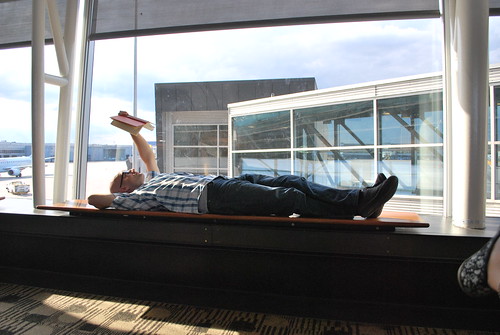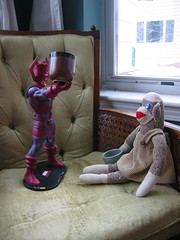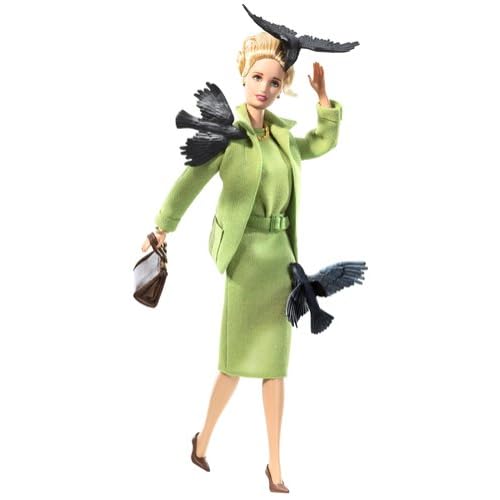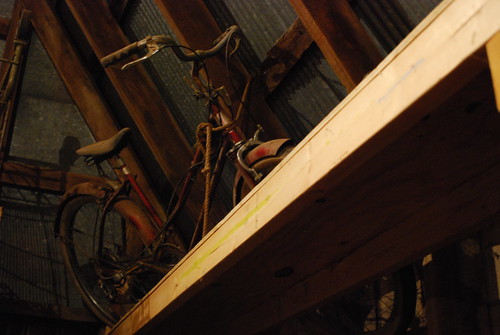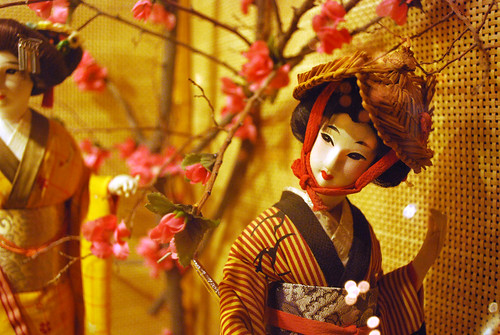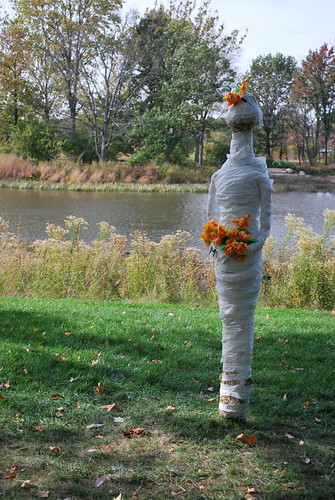
{Photo by rocketlass.}
This week's New Yorker features a "Talk of the Town" piece about the producers of a new staging of Noël Coward's Blithe Spirit asking a group of working mediums to attempt to conjure the spirit of Coward himself as part of an audition for a job as advisor to the actress portraying the medium in the play. The piece reminded me of an odd story I read this fall, when, deep into my annual autumnal ghost story binge, I took James Hynes's advice and bought an old copy of yet another of those Robert Arthur-edited Hitchcock anthologies, Stories for Late at Night (1961). The volume is the usual mixed but very satisfying bag, its handful of truly chilling stories–Jerome Bixby's "It's a Good Life" and John Collier's "Evening Primrose" among them–more than justifying the minimal cost of a used copy.
The story that returned to mind today was "Lady's Man" (1961), by early film actress and novelist Ruth Chatterton, which, from the point of view of Chatterton herself, relates a ghostly encounter that she had at Noel Coward's country house, Goldenhurst. In the story, Chatterton is invited to Goldenhurst for a weekend visit with a few others of Coward's circle, including his longtime close friend Joyce Carey; put up in a first-floor room that she's never seen used as guest quarters before, she senses a male presence enter her room late in the night:
I shut my eyes but they wouldn't stay shut. Even though I tried not to look, they kept wandering to that inky vaccum beyond the wide-open door. That was when the noise began, or when I became aware of it. Tap-tap-tap, as if a fingernail were tapping on the glass of the pictures on the wall, one after the other. Then the floorboards began to creak. Someone seemed to be pacing back and forth beside my bed. I could hear it plainly.What's most striking about the story is that, rather than a piece of fiction crafted to thrill the readers of Hitchcock's Mystery Magazine or Astounding Science Fiction, "Lady's Man" appears to be a straight-up ghost story. Though it builds to a delicious concluding line, it nevertheless has all the unaffected appeal of a ghost story recounted to a friend over October campfire drinks, its simple chronology and incidental details giving it the casual verisimilitude crucial to such tales–it's the sort of story that, if told by a trusted friend, one would have to file in the "I don't believe in ghosts, but . . . " drawer. In the midst of stories with steel-trap plots and inexorably building tension, it's a breath of fresh–if undeniably creepy–air.
Chatterton died later that same year, 1961, and my relatively cursory searching turns up no other mention of this encounter. Philip Hoare's 1998 biography of Coward, however, does mention hauntings at Goldenhurst, though in a different, newer room:
Here guests–who had included Maugham just a few months before–reported odder events. Lilia Ralli, the Greek-born friend of the Duchess of Kent, had a restless night in the French Room, a new guest room built off the long passage. Coward came to the conclusion, based on other disturbed nights, that local tales of a suicide walking the path over which the room had been built were true and that it was haunted by a lovelorn Kentish lad.Hoare, understandably, can't resist adding in a footnote:
Subsequent tenants of the house describe a feeling of being watched when playing the piano, which they ascribe to Coward's continuing presence. His ghost has also been reported in more unlikely venues: the bar manager of the Little Theatre in Wells claimed to have seen his spectral form, clad in a smoking jacket during an amateur production of Cowardy Custard.To return to the "Talk of the Town" piece (in which one of the producers says that the most effective of the mediums, "scared the shit out of me"): I wonder whether the producers' desire for additional coaching for their medium was a result of their having read last year's fascinating collection of Coward's letters, in which he registers vigorous disapproval of the actress who originated the role in the first London run of Blithe Spirit:
The great disappointment is Margaret Rutherford, whom the audience love, because the part is so good, but who is actually very, very bad indeed. She is indistinct, fussy and, beyond her personality, has no technical knowledge or resources at all. She merely fumbles and gasps and drops things and throws many of my best lines down the drain. She is despair to Fay, Cecil and Kay and mortification to me because I thought she would be marvelous. I need hardly say she got a magnificent notice. So much for that.If a producer wants to avoid being haunted by Coward, perhaps it's worth taking a little extra effort over the medium?
